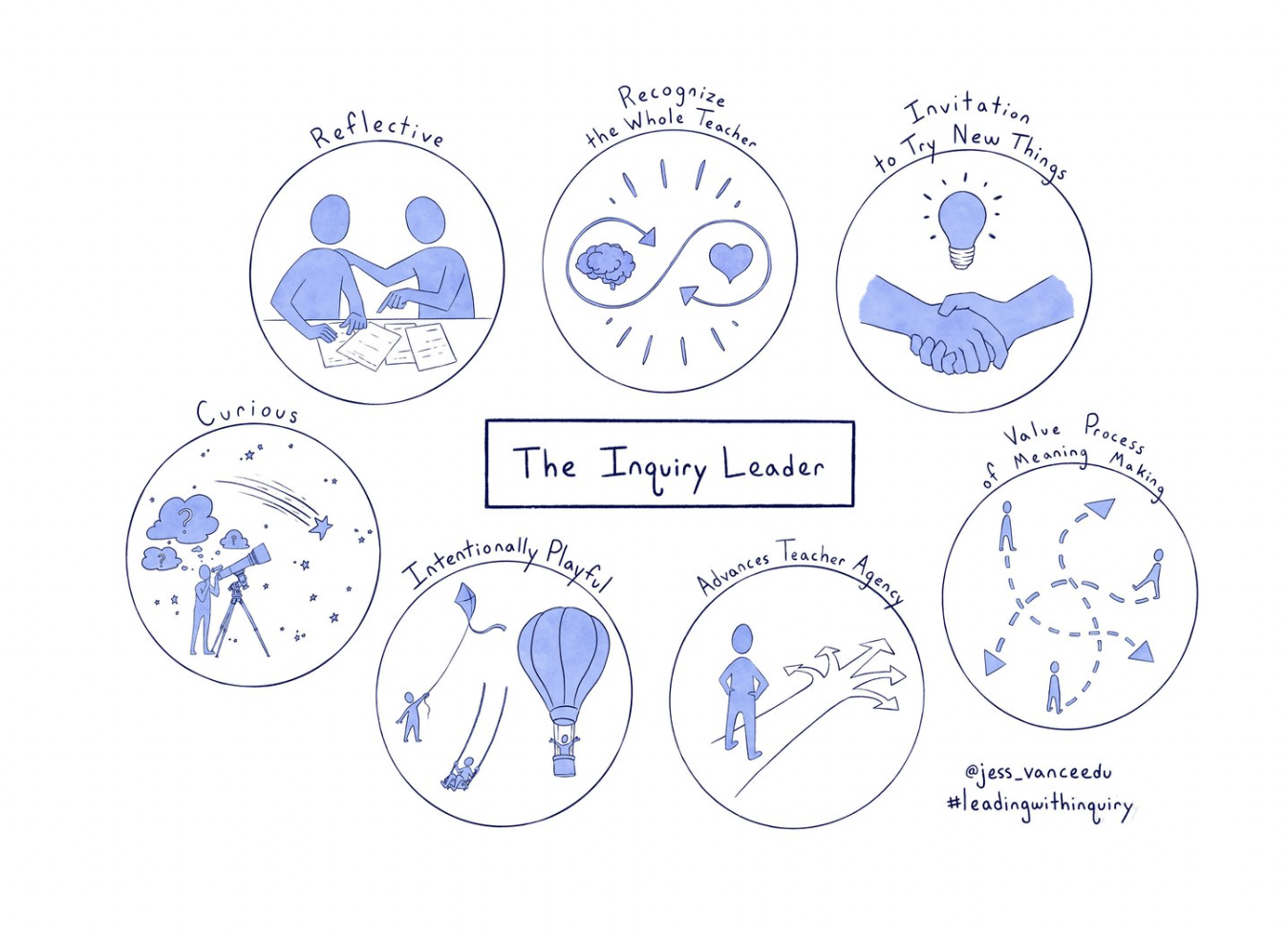Education Leadership Questions for Nurturing an Inquiry Mindset
The wisdom we bring to our roles as leaders begins with wonder. And our path to identifying the dispositions needed in our roles is a powerful way to cultivate an inquiry mindset begins because we are curious ourselves.
Early last fall, I was curious myself. I was curious to explore the dispositions leaders embody that cultivate the conditions for inquiry. I was curious to connect with school leaders and learn more about the ways that they felt stifled in their roles. I was curious to facilitate and co construct learning with the very leaders who are responsible for supporting so many other educators, creating a space for reflection and self inquiry.
My questions and wonders led me to cohort of leaders who were curious as well. From heads of schools, to IB programme coordinators and department leads, each of these educators were open minded to stretching themselves as inquiry leaders and further delving into the ways that their pivotal roles impact those they serve. Having been so disconnected over the past two years, this was an opportunity for us to reconnect with our roles, redefine the ways we collaborate and create space to engage in a reflective process with one another.
I asked these leaders to consider the following guiding questions:
What dispositions are necessary as we lead with a lens of inquiry? How do these parallel with those needed for our student learners?
What are the ways we empower ourselves and our teachers towards a more reflective practice?
What are the small and big ways we nurture an environment of inquiry?
How can we honor the agency of our teachers, yet move towards our campus and programme goals?
And, as with all inquiries, each leader, my learners, took these questions in a direction that was most meaningful to them. We collected evidence, shared our noticings, and reflected with one another as we co constructed action steps towards leading more with an inquiry mindset. Each leader took risks, were vulnerable with their sharing and kept in open mind as we played with new ideas and mindsets.
Each of these powerful questions led to even more questions. More questions led to answers. Answers nudged the leaders to be more mindful in their roles and provoked thinking towards essential “inquiry moves”.
And while the leaders were reflecting on their practice, I too was reflecting on mine. In my own gathering of evidence and reflection process, I realized that rich language was emerging and quite necessary to develop for the leaders. Many of the dispositions we were hoping to nurture in our adult learners needed to be modeled and developed within ourselves. Attributes emerged giving us language that became the foundation of the work we did with one another. The more I leaned in and used this language, the more I began to see shifts in the way that the leaders saw themselves, ultimately writing a whole chapter (chapter 3) in Leading with a Lens of Inquiry on the dispositions of an inquiry leader. This chapter outlines the attributes, and also lifts up the questions leaders should ask themselves. I continue use these very questions with my work with schools and leaders as we learn more about what it means to nurture schools and cultures that allow inquiry to thrive.
You can download this sketch note here.
Much of my work with leaders continues to be grounded in these dispositions. These are promptly displayed in my office on the campus that I serve at and I find myself leaning into to these and reflecting on how they show up in my daily work with my learners.
I wonder how they settle for you too…
Which of these are your strengths?
Which are stretches?
Which of these are more curious to learn more about?
I’m looking forward to having more of this work out in our inquiry community, reading more of your take aways on Instagram and Twitter and connecting with more of you. As with my experiences described above in the fall, I’m quite confident that your learning, your reflections and your sharing about the impact this has in your professional practice will have their own influence on me as a learner as well.

